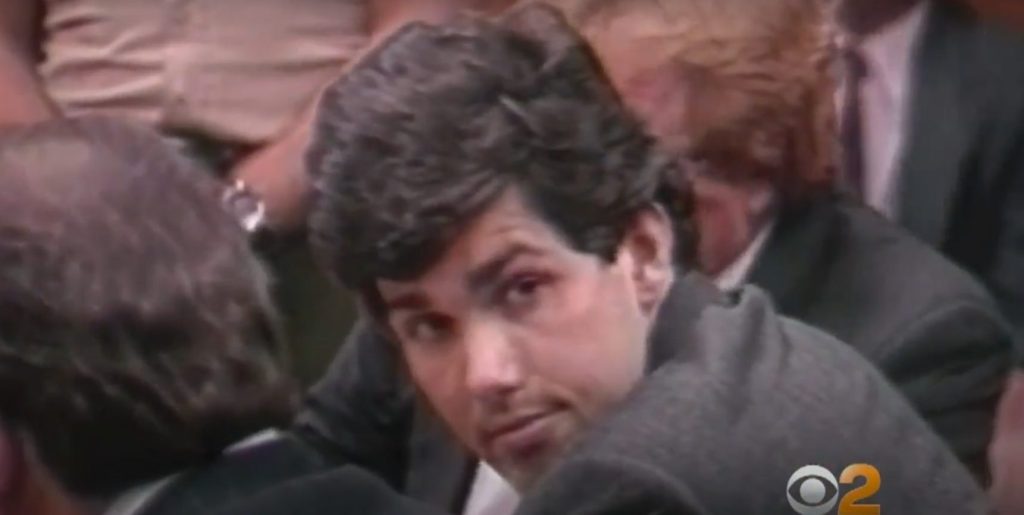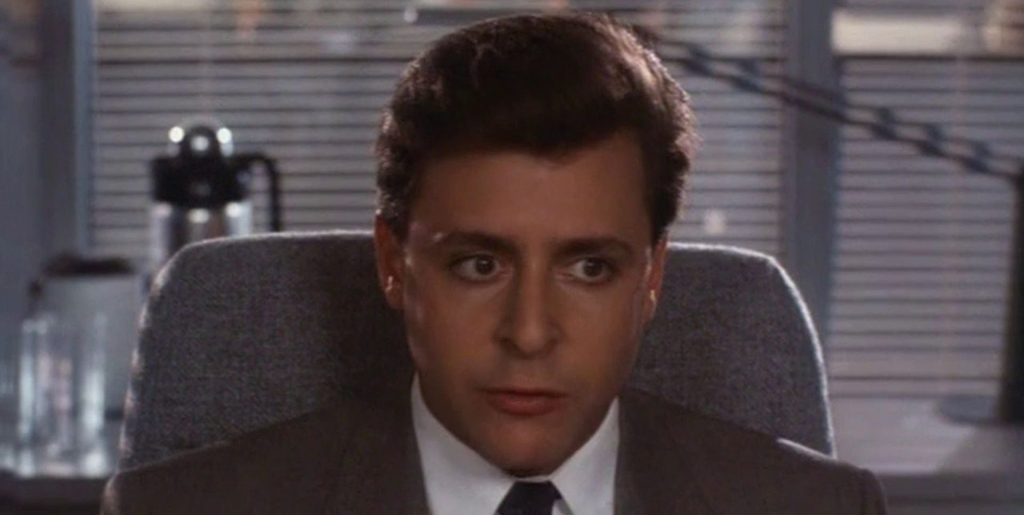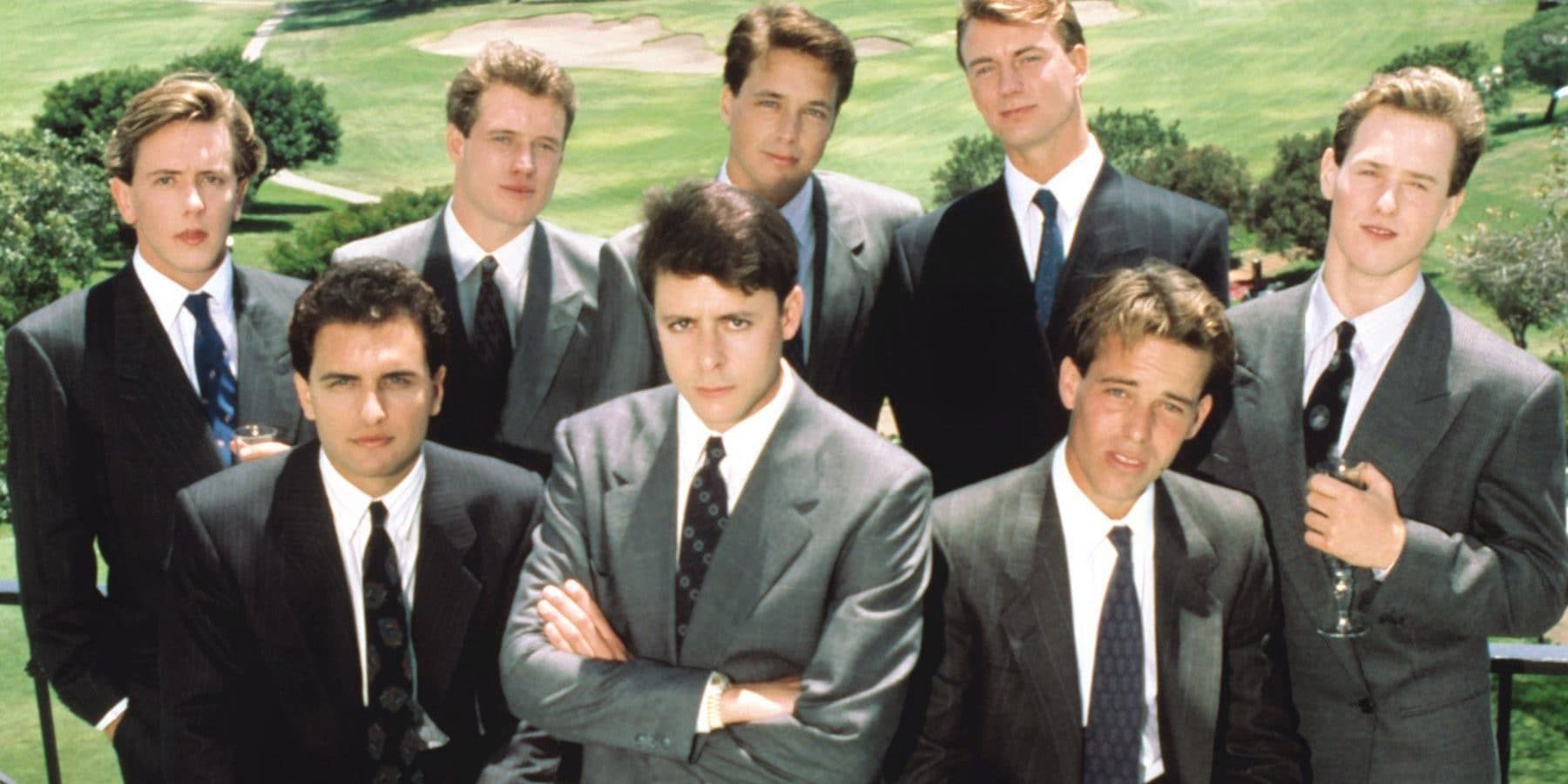The 1989 murders of Jose and Kitty Menendez by their sons Lyle and Erik form the basis of the second installment, titled ‘The Lyle and Erik Menendez Story,‘ of Netflix’s anthology series ‘Monsters.’ The case became a nationwide sensation owing to the grisly nature of the murders and the sexual abuse allegations that came out of it. However, one of the key moments happened during the trial itself, when the chief prosecution witness mentioned the TV movie ‘Billionaire Boys Club’ as the inspiration for the brothers’ motivation and plan to kill their parents. There was even a request to screen it for the jury during the trial, which was rejected by the presiding judge.
The 1987 thriller film, which originally aired as a two-part miniseries, follows the cutthroat acumen of Joe Hunt, a ruthless businessman looking to make money through a variety of dubious schemes. Hunt sets up an organization to fuel his dreams, recruiting like-minded individuals to help him on his journey to amass wealth. However, after a con man named Ron Levin enters the fold, things begin to spiral out of control as Hunt continues his descent into the annals of greed. The Marvin J. Chomsky directorial peeks behind the curtains of a tale based on a gruesome case that is both whimsical and eerily devoid of any morality.
The Real-Life Ponzi Scheme and Murder Cases Behind Billionaire Boys Club
‘Billionaire Boys Club’ is based on events surrounding a real organization known as the Billionaire Boys Club, founded and operated by Joe Hunt. It ran from 1983 to 1989 under Hunt’s leadership and was abbreviated as BBC in relation to the Bombay Bicycle Club, a restaurant frequented by Hunt during his early years. Written by Gy Waldron, the TV movie chronicles the lifestyle of the BBC members and Hunt’s eventual run-in with the law after he got involved in two murder cases. The BBC was a group that offered various get-rich-quick schemes to its clients, but it was ultimately found to be one large Ponzi scheme.

Hunt recruited group members by enticing the sons of affluent people who were attending the Harvard School for Boys in the Los Angeles area. Most of the money flooding into the organization through investors was utilized to finance the lavish and luxurious lifestyle of the group members. It was created to show the wealthy parents of the members that their sons could succeed on their own without any help. However, the enterprise became muddied when Hunt and other members were charged with the murder of Ron Levin, a major investor in the group and a con artist, and of Hedayat Eslaminia, the father of Reza Eslaminia, a BBC associate.
Ron Levin was a con man who allegedly swindled the BBC out of $4 million. Hunt’s bodyguard, Jim Pattman, later alleged in an interview that Hunt wanted Levin dead “because he was the first person ever to make Joe look like a fool in front of the rest of the guys.” Levin disappeared on June 6, 1984, and his body was never found. There were some claims that Levin had been viewed to be alive and well after his disappearance. However, in his 1987 trial, Hunt was found guilty of killing Ron Levin and was sentenced to life in prison without the possibility of parole. The trial for the murder of Hedayat Eslaminia ended with a life sentence for Dosti and Reza Eslaminia. However, the conviction was later overturned, and Hunt was also acquitted of his murder charge.
The Challenges of Adapting the True Crime Story
Making the TV movie came with its own struggles for screenwriter Gy Waldron. He was contacted to write a four-hour miniseries on the Billionaire Boys Club case in a limited time. This created further problems down the road as he barely had enough preparation to complete rewrites on the script and do the necessary background research on the subject matter. In an interview with Rediscover the 80s, Waldron explained, “The last week of Joe Hunt’s trial I was contacted by the network to write a four-hour miniseries if he was found guilty. He was, and the next day I was in the courtroom for the penalty phase. The major problem was time; we had to be in production in a month with all four hours written.”

The writer further stated, “Normally a month of writing is allowed per hour. This meant that they would be shooting as I was writing with no time for rewrites. This included interviewing all the witnesses, the homicide detectives, the principle players and working from over 2000 pages of trial transcript and case files. I had a full-time research assistant.” Additionally, the film’s release was faced with controversy as Joe Hunt sued the network in an attempt to stop the movie from being aired, alleging it would create a bias within jurors in his murder trial for Hedayat Eslamania’s death. It ultimately came to no fruitful conclusion as the movie was allowed to be broadcast.
There was also some controversy surrounding the discrepancies in the film’s portrayal of events from the real-life story about the BBC. Joe Hunt’s family claimed that the testimonies provided by Dean Karney, the second-in-command of the group and the state’s star witness on both murder cases, formed the basis of the TV movie. However, for the most part, the movie is a deep dive into a tale about escalation. Some parallels can be established with the David Fincher directorial ‘Fight Club,‘ where a group of struggling young men establish an underground fighting club that quickly devolves into chaos and terrorism. Another natural comparison is the Leonardo DiCaprio-starrer ‘The Wolf of Wall Street.‘
Despite the real-life roots of the movie, ‘Billionaire Boys Club’ can be viewed as a cautionary story about controlling one’s avarice. Over the years, the Billionaire Boys Club case has gripped the public imagination owing to the larger-than-life nature of the organization and its fraudulent practices. By digging into the heightened aspects of the narrative, it captures the wildness of a scheme gone out of hand. While a real case underpins its premise, the movie’s storytelling is brimming with a sense of reality that is not just based on actual events but grounded in the dangers of excess.
Read More: Where is Netflix’s Monsters: The Lyle and Erik Menendez Story Filmed?


You must be logged in to post a comment.